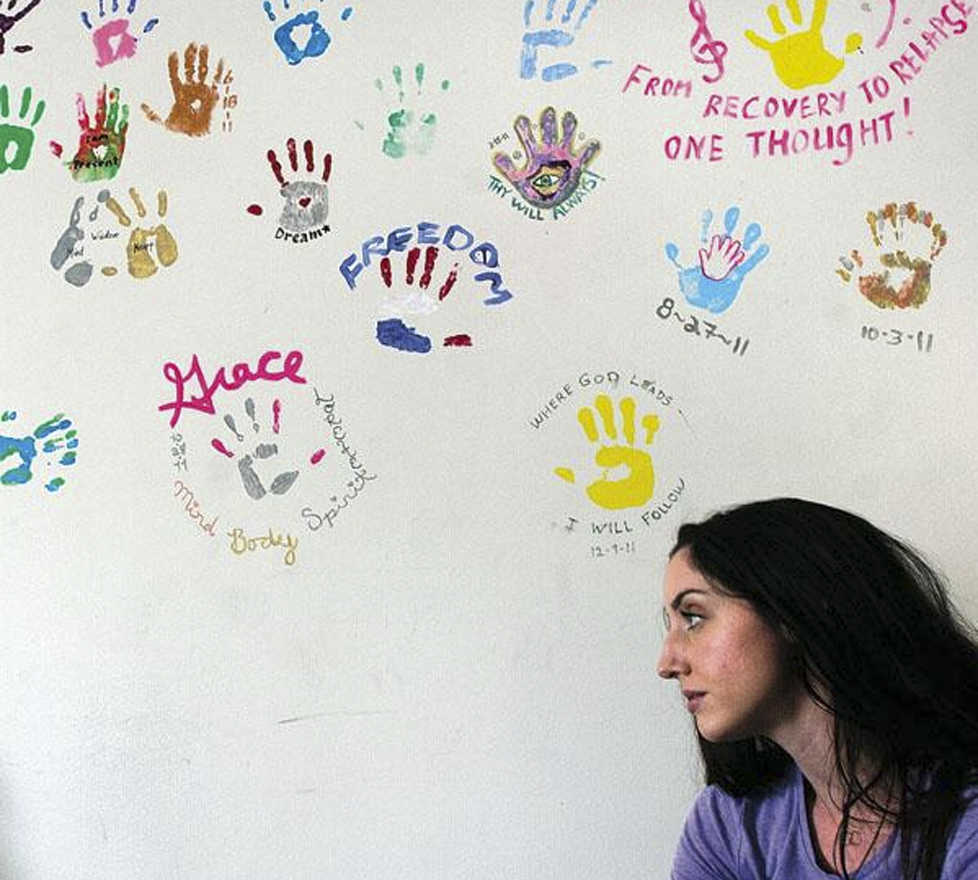Employees of Central Peninsula Hospital’s Serenity House are hoping people will eat popcorn for breakfast Sunday during the morning screening of “The Anonymous People,” a documentary about addiction and recovery, at the Orca Theater in Soldotna.
For the price of a non-perishable food item donation, movie-goers will learn about the 23.5 million people in America living in long-term recovery from alcohol and drug abuse and the stigma associated with addiction.
“When I saw the trailer I got really excited,” said Serenity House chemical dependency counselor Aurora Graves. “It talks about being able to advocate for recovery, because recovery really happens, without treading on any traditions of an established 12-step type program and being able to change the stigma that’s associated with being in recovery.”
The film screening is part of a partnership between the Serenity House and the Kenai Peninsula Food Bank to draw awareness to September as both National Recovery Month and Hunger Action Month.
Graves said the partnership between the food bank and the treatment center was a natural extension of work the two organizations do together with the addicted and recovering people on the Kenai Peninsula.
“We actually do utilize the food bank quite heavily when we’ve got people who transition back out into the world,” Graves said. “A lot of times they’re unemployed and even if they are employed their income is low enough if they’ve got dependants at home and can’t make ends meet just yet and so we will … take people over there and help them get not only the food they need but also help them figure out what’s a menu, help them develop that skill.”
Graves and CPH Behavior Health Director Dr. Kristie Sellers said they hoped the documentary would change the way people think about their friends, neighbors and people in the community who are addicted to drugs or alcohol.
Barriers to long-term recovery are different in every community. On the Kenai Peninsula, Graves said, one of the impediments to recovery can be the lack of public transportation.
The logistics of traveling between communities to get to doctor’s appointments, treatment or work — especially without a valid driver’s license — can be daunting.
More than 80% of the people admitted to Serenity House are either alcoholics or abuse alcohol to the extent that it is a significant factor in their problems, Sellers said, so the number of people who have broken state law and lost their driving privileges is high.
“I think there’s a piece of all of us that says, ‘you got a DUI, I don’t really care that you have to pay a little bit of your salary and do without a few things to pay for your taxi.’ I mean, we all have a little bit of that, but what we don’t realize is that the taxi ride is well over $100 to get from Nikiski to (Soldotna),” Sellers said. “So while I’m totally fine with the person that has a DUI having some life consequences because of that, what happens here is that those life consequences are so large that they become a barrier to any kind of productive future activity.”
Both Sellers and Graves said they hoped people would attend the screening and learn to support addiction recovery in the same way that other types of diseases are socially supported.
“If we have a rally for breast cancer, think about the number of people that show up to support breast cancer,” Sellers said. “I think that’s a mazing, but more people suffer from addiction than suffer from breast cancer. It’s amazing to me for a couple of reasons, one that we’ve put so much stigma on it that people would come out and rally for addiction and two that the whole thing that’s happened around breast cancer shows me that, as a society, when we put our hearts and minds together, we can make a change and if we can do it with breast cancer — why can’t we do it for addiction?”

